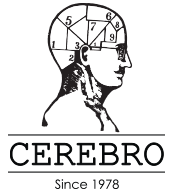Product Details
Joshua Reed Giddings (1795-1864) was an American statesman prominent in the anti-slavery conflict. He was born at Tioga Point, now Athens, Bradford County, Pennsylvania, on 6 October 1795. In 1806 his parents removed to Ashtabula County, Ohio, then sparsely settled and almost a wilderness. The son worked on his father's farm, and, though he received no systematic education, devoted much time to study and reading. For several years after 1814 he was a schoolteacher, but in February 1821 he was admitted to the Ohio bar and soon obtained a large practice, particularly in criminal cases. From 1831 to 1837 he was in partnership with Benjamin F. Wade. He served in the Pennsylvania House of Representatives from 1826-1828, and from December 1838 until March 1859 was a member of the United States House of Representatives, first as a Whig, then as a Free-soiler, next as a candidate of the Opposition Party, and finally as a Republican. Recognizing that slavery was a state institution, with which the Federal government had no authority to interfere, he contended that slavery could only exist by a specific state enactment, that therefore slavery in the District of Columbia and in the Territories was unlawful and should be abolished, that the coastwise slave-trade in vessels flying the national flag, like the international slave-trade, should be rigidly suppressed, and that Congress had no power to pass any act which in any way could be construed as a recognition of slavery as a national institution. His attitude in the so-called Creole Case attracted particular attention, particularly since it was so closely associated with struggles by antislavery Congressmen to repeal the notorious "gag rule barring antislavery petitions,, a campaign led in the House of representatives by ex-President John Quincy Adams. In 1841 some slaves who were being carried in the brig Creole from Richmond and Hampton Roads, Virginia, to New Orleans, revolted, wounded the captain and killed one of the white overseers, gained possession of the vessel, and soon afterwards entered the British port of Nassau. Thereupon, according to British law, they were set free. However, the minority who had taken an active part in the revolt were arrested on a charge of murder, and the remaining were liberated. Efforts were made by the United States government to recover the slaves; Daniel Webster, then secretary of state, asserting that on an American ship they were under the jurisdiction of the U.S. and that they were legally property. On the 21st of March 1842, before the case was settled, Giddings introduced in the House of Representatives a series of resolutions, in which he asserted that in resuming their natural rights of personal liberty the slaves violated no law of the U.S. For offering these resolutions Giddings was attacked with rancor, and was formally censured by the House. Thereupon he resigned, appealed to his constituents, and was immediately reelected by a large majority. The "gag rule" was repealed three years thereafter. Giddings went on to lead Congressional opposition by free state politicians to any further expansion of slavery, condemning the annexation of Texas (1846), the Mexican War (1846-8), the 1850 Compromises and the Kansas Nebraska Act( 1854) His hatred of slavery led him to abandon his initial allegiance to the Whig party for the Free-Soil party (1848) and in 1854-5 he became one of the leading founders of the Republican party. Throughout his life he was always very active in the Underground Railroad and was widely known (and condemned) for his egalitarian racial beliefs and actions. In 1859 he was not renominated, and retired from Congress after a continuous service of more than twenty years. From 1861 until his death, at Montreal, on the 27th of May 1864, he was U.S. consul general in Canada. Giddings published a series of political essays signed Pacificus (1843); Speeches in Congress (1853); The Exiles of Florida (1858); and a History of the Rebellion: Its Authors and Causes (1864).
 View Cart {{shoppingcart.totalQuantityDisplay}} Item(s)
View Cart {{shoppingcart.totalQuantityDisplay}} Item(s)
 View Cart {{shoppingcart.totalQuantityDisplay}} Item(s)
View Cart {{shoppingcart.totalQuantityDisplay}} Item(s)
